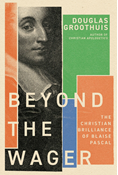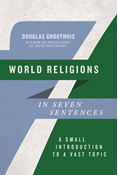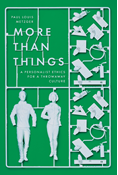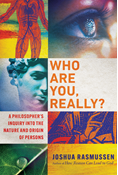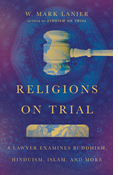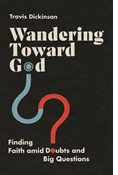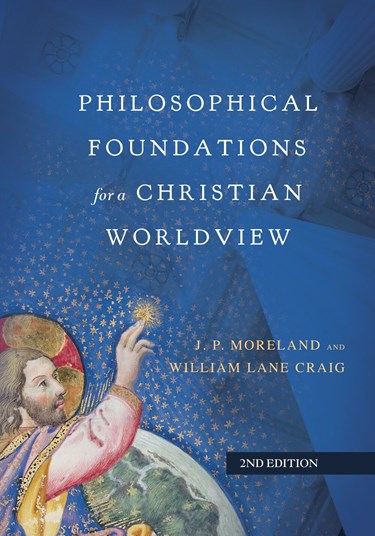
|
Philosophical Foundations for a Christian Worldview
casebound
|
- Length: 708 pages
- Dimensions: 7 × 10 in
- Published: October 10, 2017
- Imprint: IVP Academic
- Item Code: 5187
- ISBN: 9780830851874
-
Other Retailers:
Amazon*
*affiliate partner
- Winner of a 2004 ECPA Gold Medallion Award
- Winner of an Award of Excellence in the 2003 Chicago Book Clinic
- What is real?
- What is truth?
- What can we know?
- What should we believe?
- What should we do and why?
- Is there a God?
- Can we know him?
- Do Christian doctrines make sense?
- Can we believe in God in the face of evil?
These are fundamental questions that any thinking person wants answers to. These are questions that philosophy addresses. And the answers we give to these kinds of questions serve as the foundation stones for constructing any kind of worldview.
Now updated and expanded in this second edition, Philosophical Foundations for a Christian Worldview by J. P. Moreland and William Lane Craig offers a comprehensive introduction to philosophy from a Christian perspective. In their broad sweep they seek to introduce readers to the principal subdisciplines of philosophy, including epistemology, metaphysics, philosophy of science, ethics, and philosophy of religion. They do so with characteristic clarity and incisiveness. Arguments are clearly outlined, and rival theories are presented with fairness and accuracy.
Philosophy, they contend, aids Christians in the tasks of apologetics, polemics, and systematic theology. It reflects our having been made in the image of God, helps us to extend biblical teaching into areas not expressly addressed in Scripture, facilitates the spiritual discipline of study, enhances the boldness and self-image of the Christian community, and is requisite to the essential task of integrating faith and learning.
Here is a lively and thorough introduction to philosophy for all who want to know reality. This second edition now includes including enhanced arguments, updated bibliographies, and new chapters on atonement and the mind-body problem.
"Philosophical Foundations for a Christian Worldview has been the book I most frequently recommend for those desiring a clearly-written, distinctively Christian overview of the key subdisciplines of philosophy. So I am pleased that this volume is now in an updated second edition, written by two influential Christian philosophers whose academic work, personal integrity, and warm friendship have had an impact on my own life and writings over the years."
"Addressing some of the most important questions concerning the relationship between faith and reason, Craig and Moreland provide the serious student of philosophy a coherent and tightly argued account of the intellectual credentials of Christian belief. Although I sometimes find myself disagreeing with them (e.g., on divine simplicity and timelessness), their mastery of philosophical argument is impressive."
"Moreland and Craig have taken a great text and made it even better. Since the original publication of Philosophical Foundations for a Christian Worldview in 2003, it has risen to the top of the pyramid as a resource for Christian students and scholars in expounding and defending the philosophical basis for the Christian worldview. The comprehensiveness of this text is overwhelming and now has been made even better with updates including new chapters on substance dualism, new evidence for the Kalam argument and the fine-tuning argument, an updated section on divine aseity, and a whole new chapter on the atonement. While accessible to the new student, it also offers the depth required for the graduate philosophy student. As the authors themselves affirm, 'This is no bedtime reading!' It will require hard work but pays off like no other philosophy book I am aware of."
"The first edition of Moreland and Craig's Philosophical Foundations for a Christian Worldview was both formational and transformational in my development as a young academic philosopher. Their careful (and faithful) thinking, along with their fair (and firm) engagement with the strongest scholarship from all worldview perspectives serves as an excellent model and guide. The additional chapters on atonement and physicalist versus dualist conceptions of human persons strengthen an already-comprehensive tome. Philosophical Foundations for a Christian Worldview is far from an easy read, but the challenge reaps rich intellectual reward."
Moreland and Craig present a comprehensive introduction to philosophy from a Christian point of view. Both theologically and philosophically engaging and stimulating. Moreover, the book is structured in such a way that prior knowledge in philosophy is not necessarily required to understand it. I highly recommend it.
CONTENTS
Preface
Outline of the Book
An Invitation to Christian Philosophy
Part I: Introduction
1 What Is Philosophy?
2 Argumentation and Logic
Part II: Epistemology
3 Knowledge and Rationality
4 The Problem of Skepticism
5 The Structure of Justification
6 Theories of Truth and Postmodernism
7 Religious Epistemology
Part III: Metaphysics
8 What Is Metaphysics?
9 General Ontology: Existence, Identity, and Reductionism
10 General Ontology: Two Categories?Property and Substance
11 The Mind-Body Problem Part IA: Consciousness and Property Dualism or Mere-Property Dualism
12 The Mind-Body Problem Part IB: Alternatives to Property Dualism or Mere-Property Dualism
13 The Mind-Body Problem Part IIA: Arguments Regarding and Versions of Substance Dualism
14 The Mind-Body Problem Part IIB: The Main Physicalist Alternatives to Substance Dualism
15 Free Will and Determinism
16 Personal Identity and Life After Death
Part IV: Philosophy of Science
17 Scientific Methodology
18 The Realism-Antirealism Debate
19 Philosophy and the Integration of Science and Theology
20 Philosophy of Time and Space
Part V: Ethics
21 Ethics, Morality, and Metaethics
22 Ethical Relativism and Absolutism
23 Normative Ethical Theories: Egoism and Utilitarianism
24 Normative Ethical Theories: Deontological and Virtue Ethics
Part VI: Philosophy of Religion and Philosophical Theology
25 The Existence of God I
26 The Existence of God II
27 The Coherence of Theism I
28 The Coherence of Theism II
29 The Problem of Evil
30 Creation, Providence, and Miracle
31 Christian Doctrines I: The Trinity
32 Christian Doctrines II: The Incarnation
33 Christian Doctrines III: Atonement
34 Christian Doctrines IV: Christian Particularism
Suggestions for Further Reading
Name Index
Subject Index
Scripture Index


